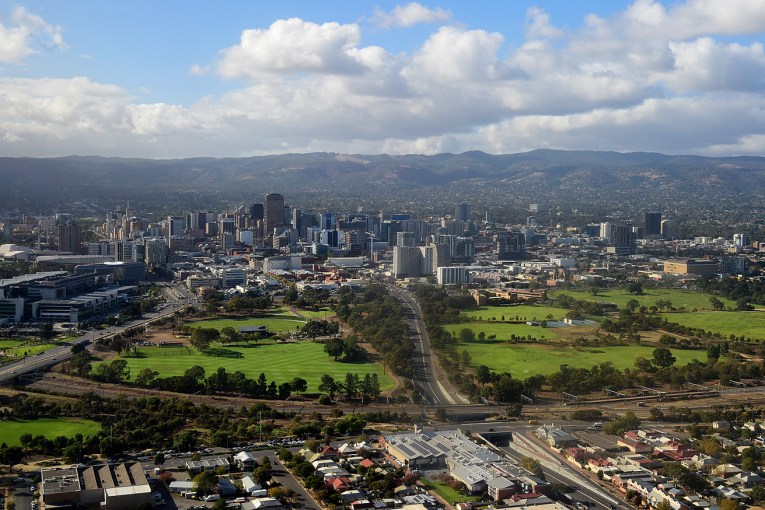Barnaby’s ‘common sense’ economics could sink us all

Common sense. We all think we know what it is, and there’s usually loud cheering when politicians break ranks with their parties to give us the unvarnished truth.
In that respect, Barnaby Joyce has received many cheers, and boos, over the years for his verbal sprays on what’s ‘really’ happening to Australia.
Indeed, the case might be made by historians that Mr Joyce set the direction of many recent debates.
In 2009, he was the catalysing element in the Coalition on climate change. His agitating began a process that led the party to oust Malcolm Turnbull in favour of Tony Abbott.
• Unbelievable things your tax dollars are funding
• Turnbull’s cabinet reshuffle
• Commodities won’t save Australia from recession
In 2010 he pulled off a stunning double act – being sacked as finance spokesman by Tony Abbott, but also praised by his leader as the man who “put debt and deficit on the map”.
In the same year, having toured irrigation towns to burn copies of Labor’s Murray Darling Basin Plan, he forced an overhaul of the MDBP process which ultimately handed back oodles of water to irrigators.
And he was even the driving force behind moves to set up a register of foreign ownership of agricultural assets, and helped Joe Hockey quash the takeover of grain bulk-handler GrainCorp by US interests.
On each of these issues, Mr Joyce has achieved what media advisers call ‘cut-through’, largely through colourful comments that virtually guarantee a run on the evening news. Remember when he said of Julia Gillard, “I’m not going to go chasing her around the bedroom or digging up dirt on her”?
Economical with the truth?
The art of demagoguery is to provide audiences with seemingly logical statements that fire the passions. But how logical have Mr Joyce’s outbursts been? To take the above list in order:
• John Howard and his top adviser Peter Shergold believed climate change was real, and an ETS was the cheapest way to take part in global moves to address it. Subsequent leaders Brendan Nelson and Mr Turnbull agreed. Mr Joyce’s reasons for opposing it, according to Fairfax’s Peter Hartcher, included the question: “How does passing a piece of paper in a room in Canberra change the temperature of the planet?”

John Howard backed the ETS that Barnaby Joyce helped Tony Abbott to destroy. Photo: AAP
• Mr Joyce put ‘debt and deficit’ on the map when the net federal debt was a tiny 6 per cent of GDP. That stock of debt has risen to 17 per cent this financial year, which for some is proof that he was right. However, that overlooks the fact that even now the level of public debt is among the lowest in the world.
• What Mr Joyce was burning in 2010 was in fact the ‘Guide to the draft’ of the Murray-Darling Basin Plan, not the plan itself. He put huge pressure on the government, it’s true. However the rage he whipped up obscured two facts: that the river system was doomed without any plan, and that it was the Howard government that over-allocated water in the first place.
• On agriculture, Mr Joyce claims on the one hand to want greater investment to realise the value-added potential of Australian agriculture. But on the other he led the campaign against the recapitalisation of bulk-handler GrainCorp by US firm ADM, which the government had to claim was because it wasn’t a “fit and proper” owner of such an asset – though just couldn’t tell us why.
A common sense crisis
Prime Minister Turnbull is in a difficult position with Mr Joyce, and will no doubt seek to silence him on certain issues. Already Mr Joyce has cancelled his appearance on the ABC’s Q&A program scheduled for Monday evening.
Mr Turnbull took on the prime ministership in the most difficult economic environment seen since the credit crunch of 2009.
Global markets are not just having a tantrum. Central banks around the world have created an almost impossible situation, via super-loose monetary policy and massive asset inflation, which together have failed to stimulate global growth.

Prime Minister Malcolm Turnbull will likely struggle to control Barnaby Joyce. Photo: Getty
In this environment, there will not be many ‘common sense’ explanations for what must be done to protect Australian interests.
Mr Turnbull has a deeper knowledge of global and domestic markets than any leader since Paul Keating – and probably much better than Mr Keating. His grasp of the monetary and fiscal problems around the globe is also deep.
He and Treasurer Scott Morrison must grapple with these problems as global forces shred our equity markets, throw the dollar around like a yo-yo, and threaten to shove the nation into recession.
In that context, Mr Joyce’s common sense, cut-through comments could be very dangerous indeed.
The Australian economy is quite unlike a household. It budget functions differently to a set of kitchen-table calculations. Its precarious geopolitical location needs to be handled with great tact and understanding, not tub-thumping, book-burning populism.
All of which is a good reason to handle Mr Joyce’s economic comments with the greatest of caution.
There is little doubting the deputy PM’s sincerity. Whether he knows what he’s talking about is quite another matter.









